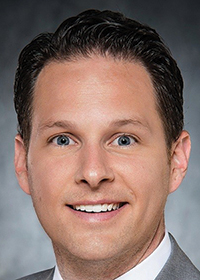Owning or starting a small business is challenging, even in the best of financial times. Still, in the uncertain economy of the past few years, small business owners have faced additional challenges as the country continues to recover from the impact of the global pandemic affecting businesses of all types and sizes. Despite these challenges, savvy business owners can also find opportunities to grow and thrive in market conditions.
The workforce issue has been, and likely will continue to be, an obstacle to overcome in 2023. The pandemic is the trigger for the so-called “Great Quits,” in which many workers are willing to quit one job to try others—sometimes in quick succession—for better pay or condition. This means that the cost of acquiring and retaining a workforce has increased, and if you are lucky enough to find quality talent, you must be willing to pay more today than you did in 2019. In fact, wages have grown by an average of 6.2% since 1960, but reached an all-time high of 14.8% in April 2021, according to the U.S. Bureau of Economic Bureau analysis.
The pandemic has also wreaked havoc on global supply chains, driving up the cost of goods. The U.S. Bureau of Labor Statistics recently reported that consumer prices rose 9.1% in the year ending June 2022, the largest increase in 40 years. These increases will continue to squeeze profits for small business owners, making it harder to turn a profit.
Rising interest rates are also affecting small business owners. Higher interest rates increase borrowing costs and may reduce consumers’ discretionary spending power. Small business owners now find themselves in a situation where they are paying more for talent and merchandise, while sales are falling due to a lack of demand from cost-conscious customers, many of whom are tightening their belts and focusing more on food Necessities such as food, housing and medicines, all of which have recently increased in price.
But while many economists predict a U.S. recession in 2023, there are some bright spots for small business owners
One of the bright spots for businesses in Northwest Arkansas is that our region will continue to grow.

On a macro level, many employers pre-pandemic held on to the notion that employees had to be in the office or they weren’t productive. Forced to have people work from home, employers are discovering that workers can be just as effective, if not more, and they’re finding that being able to cut some facility costs can have an added bottom-line benefit. Today, those looking to hire can expand their talent pool by offering work-from-home or hybrid work options.
Another bright spot for the economy is consumers’ increasing focus on local, high-quality products. Whether it’s craft beer, local coffee, or chef-inspired restaurants featuring locally sourced ingredients, the need for more local options has created ample room for entrepreneurship.
A rarely mentioned key to small business success is the business owner’s trusted team of advisors, including their local banking relationships. Any bank can offer deposit accounts or loans, but having a financial partner who is invested in the local community increases the likelihood of having a banker who has a deep understanding of the challenges small businesses face in that particular community.
Bankers should strive to understand their clients’ businesses almost as well as the owners, so that they can quickly identify and provide the best advice when problems arise. This can even include contacting other small business owners or resources such as accountants, attorneys, real estate professionals, or the Arkansas Small Business and Technology Development Center at the University of Arkansas.
Business owners should look for financial partners who offer learning and business development opportunities, such as workshops related to cash flow management, fraud awareness, 401k/employer benefits, business succession, and other current topics that may affect their business. This is another area where Northwest Arkansas has an advantage relative to other markets, as nine of the top 10 NWA banks by deposit market share are based in the region.
Kelly Carlson is a vice president and merchant banker at Arvest Bank in Bentonville. Opinions expressed are those of the authors.